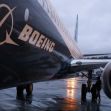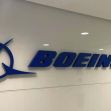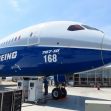A federal grand jury in Texas has indicted former chief technical Boeing pilot Mark Forkner, 49, in connection to two 737 MAX crashes. Forkner pled not guilty to six fraud charges in front of a judge last Friday.
The indictment against Forkner follows a years-long investigation into Forkner’s knowledge and dealings with the flight control system that is blamed for two 737 MAX crashes and his communication with the Federal Aviation Administration. At the center of the investigation are the late 2018 and early 2019 plane crashes that killed a total of 346 passengers and crew members. Following an investigation into the crashes, the Justice Department announced a settlement in which Boeing agreed to pay $2.5 billion to resolve a criminal investigation that alleged Boeing employees conspired to mislead the Federal Aviation Administration.
The fraud charges against Forkner relate to the pilot training materials and flight control system known as MCAS. The indictment explains that there had been changes to MCAS, and instead of reporting those changes to the FAA, Forkner kept the information to himself. As a result, the FAA excluded any references to MCAS in the approved pilot training materials. Prosecutors alleged that Forkner told the FAA that MCAS didn’t need to be mentioned in the pilot training materials because it would rarely be activated if ever. Prosecutors allege Forkner was responsible for persuading regulators to keep information about MCAS out of training material in order to save the company money on the cost of training. “In an attempt to save Boeing money, Forkner allegedly withheld critical information from regulators,” the indictment reads.
Prosecutors also shed light on messages that incriminate Forkner as having withheld the critical information that could have likely prevented the crashes. One message sent from Forkner in 2016 reads, “So I basically lied to the regulators (unknowingly) about MCAS.”
In 2019, Forkner defended against allegations that he was to blame for the 737 MAX crisis. Forkner shed light on work emails detailing the pressure he felt from management, encouraging him to cut costs on pilot training. Forkner went so far as confiding in a trusted coworker that he feared he would lose his job if he went up against upper management's push to lower costs on training.
Forkner’s defense team has pushed back against the allegations, calling the indictment an attempt to make Forker a “scapegoat.” Forkner's attorney David Gerger explained, “If the government takes this case to trial, the truth will show that Mark did not cause this tragedy, he did not lie, and he should not be charged.”
Forkner’s lawyer has called on Boeing employees to come forward with information so that a clearer picture of the truth surrounding Forker can be painted. “So I want to make a request to all of you who know the truth, you may have worked at Boeing or the FAA or an airline, now is the time to help the truth come out,” Gerger shared in a statement. “Contact us, get in touch with us, don’t be intimidated. A trial should be a search for the truth so help make Mark's trial a search for the truth, not a search for a scapegoat.”
Former Boeing employees share a similar sentiment and question why a lower-level employee like Forkner should face all the blame for the events that led up to the deadly plane crashes. A former flight deck engineer who worked alongside Forker on training instruction, Rick Ludtke, shared with the Wall Street Journal that Forkner “did not act on his own.” Ludtke described Forkner as a “highly ethical and competent pilot trying to do his best in a terrible situation.”
Forkner is facing two counts of fraud involving airplane parts in interstate commerce and four counts of wire fraud. If he is convicted, he could face up to 100 years behind bars.






